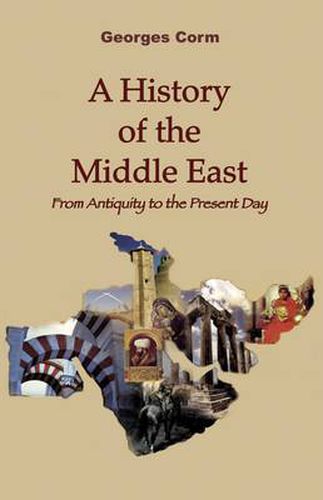Readings Newsletter
Become a Readings Member to make your shopping experience even easier.
Sign in or sign up for free!
You’re not far away from qualifying for FREE standard shipping within Australia
You’ve qualified for FREE standard shipping within Australia
The cart is loading…






Georges Corm’s work on the contemporary Middle East and the relationship between Europe and the East is now essential reading. This concise account of the history of the Middle East from before Islam to the present day is a vivid reminder of what Corm calls the ‘geology of cultures’. In order to paint a true picture of this incredibly complex part of the world, situated at the crossroads of three continents, the author examines the ‘geographical foundations’ on which the Anatolian, Iranian, Mesopotamian and Egyptian empires were built. Such an approach avoids confusion between people with separate languages but who have remained in constant interaction: Iranians, Turks and Arabs, all now part of the ‘Islamic world’.The unfortunate dynamics of the relationship between the West and the Middle East, and the decline of this region over the past two centuries, are here clearly and objectively explained, taking into account social and economic factors usually overlooked in studies of Islam and the Muslim world.
$9.00 standard shipping within Australia
FREE standard shipping within Australia for orders over $100.00
Express & International shipping calculated at checkout
Georges Corm’s work on the contemporary Middle East and the relationship between Europe and the East is now essential reading. This concise account of the history of the Middle East from before Islam to the present day is a vivid reminder of what Corm calls the ‘geology of cultures’. In order to paint a true picture of this incredibly complex part of the world, situated at the crossroads of three continents, the author examines the ‘geographical foundations’ on which the Anatolian, Iranian, Mesopotamian and Egyptian empires were built. Such an approach avoids confusion between people with separate languages but who have remained in constant interaction: Iranians, Turks and Arabs, all now part of the ‘Islamic world’.The unfortunate dynamics of the relationship between the West and the Middle East, and the decline of this region over the past two centuries, are here clearly and objectively explained, taking into account social and economic factors usually overlooked in studies of Islam and the Muslim world.